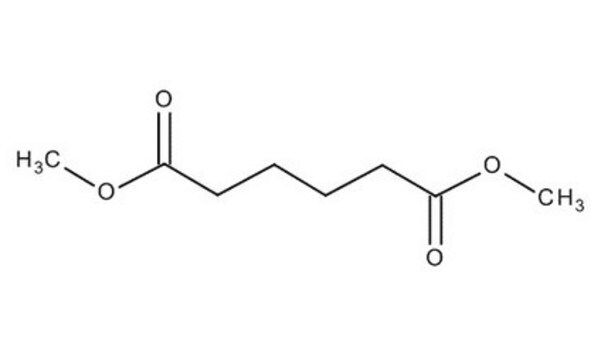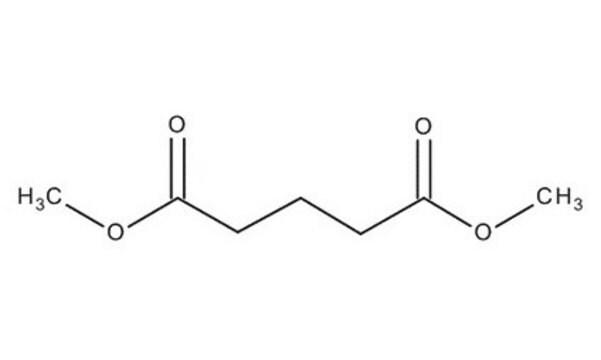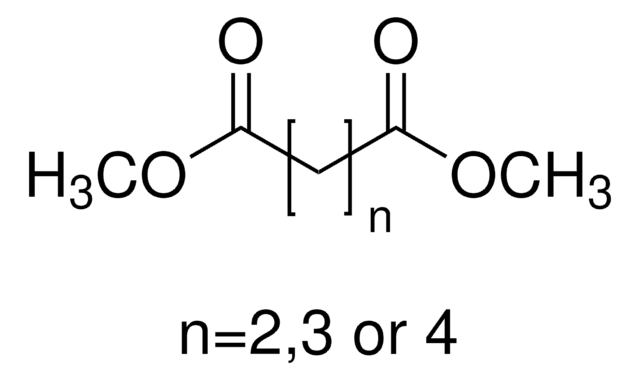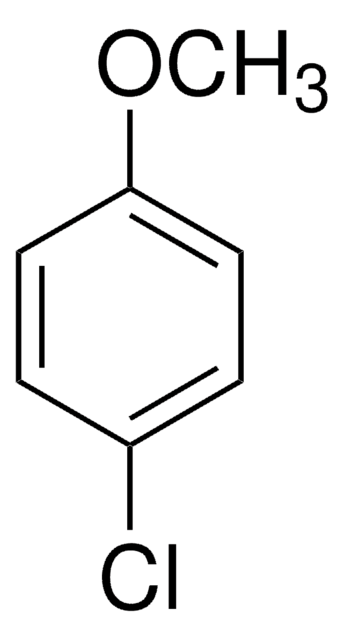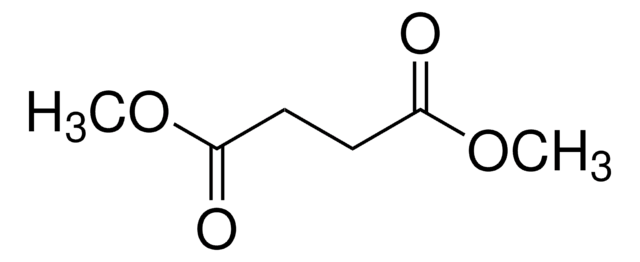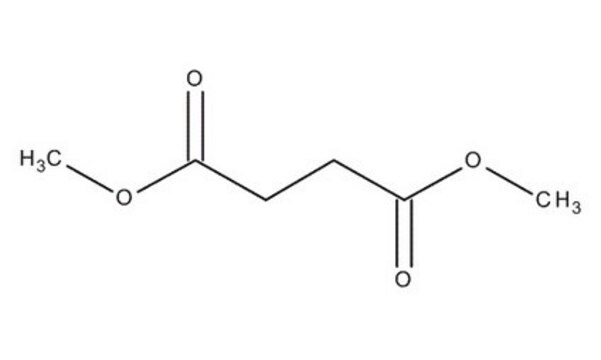186252
Dimethyl adipate
≥99%
Sinónimos:
Adipinic acid dimethyl ester, Dimethyl 1,6-hexanedioate, Dimethyl hexanedioate
About This Item
Productos recomendados
vapor pressure
0.06 mmHg ( 20 °C)
Quality Level
assay
≥99%
form
liquid
autoignition temp.
680 °F
expl. lim.
8.1 %
refractive index
n20/D 1.428 (lit.)
bp
109-110 °C/14 mmHg (lit.)
mp
8 °C (lit.)
density
1.062 g/mL at 20 °C (lit.)
SMILES string
COC(=O)CCCCC(=O)OC
InChI
1S/C8H14O4/c1-11-7(9)5-3-4-6-8(10)12-2/h3-6H2,1-2H3
InChI key
UDSFAEKRVUSQDD-UHFFFAOYSA-N
¿Está buscando productos similares? Visita Guía de comparación de productos
Categorías relacionadas
Application
- Micro/nanoencapsulation for cool thermal energy storage: Dimethyl adipate has been encapsulated into a polymer shell, improving its thermal properties and making it suitable for cool thermal energy storage applications (Trivedi & Parameshwaran, 2022).
- Sustainable production via non-heme iron (III) catalysis: A method for producing dimethyl adipate through oxidative cleavage of catechol using non-heme iron (III) catalysts highlights an environmentally friendly approach (Jastrzebski et al., 2015).
- Boosted nitrilation for adiponitrile production: The development of bimetallic oxide catalysts for the nitrilation of dimethyl adipate to adiponitrile shows enhanced activity and selectivity, important for industrial applications (Guo et al., 2023).
Storage Class
10 - Combustible liquids
wgk_germany
WGK 1
flash_point_f
230.0 °F - closed cup
flash_point_c
110 °C - closed cup
ppe
Eyeshields, Gloves
Elija entre una de las versiones más recientes:
¿Ya tiene este producto?
Encuentre la documentación para los productos que ha comprado recientemente en la Biblioteca de documentos.
Los clientes también vieron
Global Trade Item Number
| Número de referencia del producto (SKU) | GTIN |
|---|---|
| S986402-1EA | |
| 186252-500G | 4061838758019 |
| 186252-5G | |
| 186252-100G | 4061838758002 |
Nuestro equipo de científicos tiene experiencia en todas las áreas de investigación: Ciencias de la vida, Ciencia de los materiales, Síntesis química, Cromatografía, Analítica y muchas otras.
Póngase en contacto con el Servicio técnico